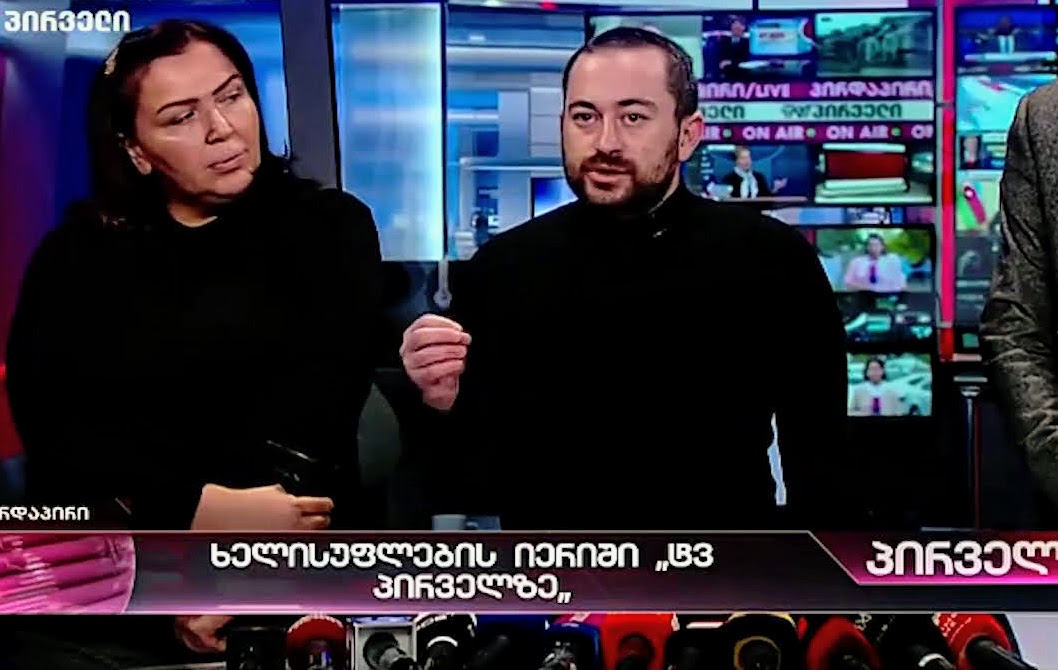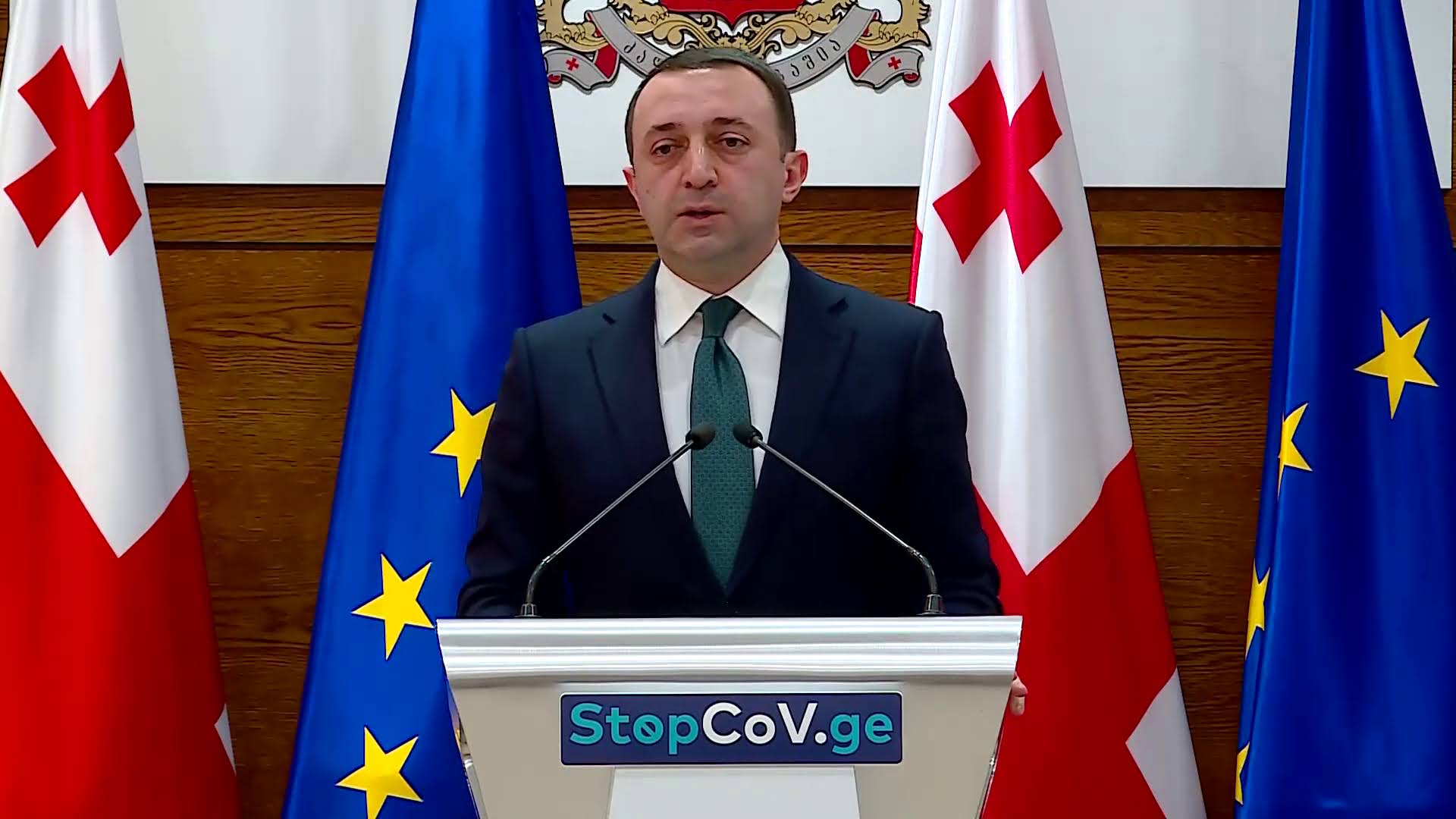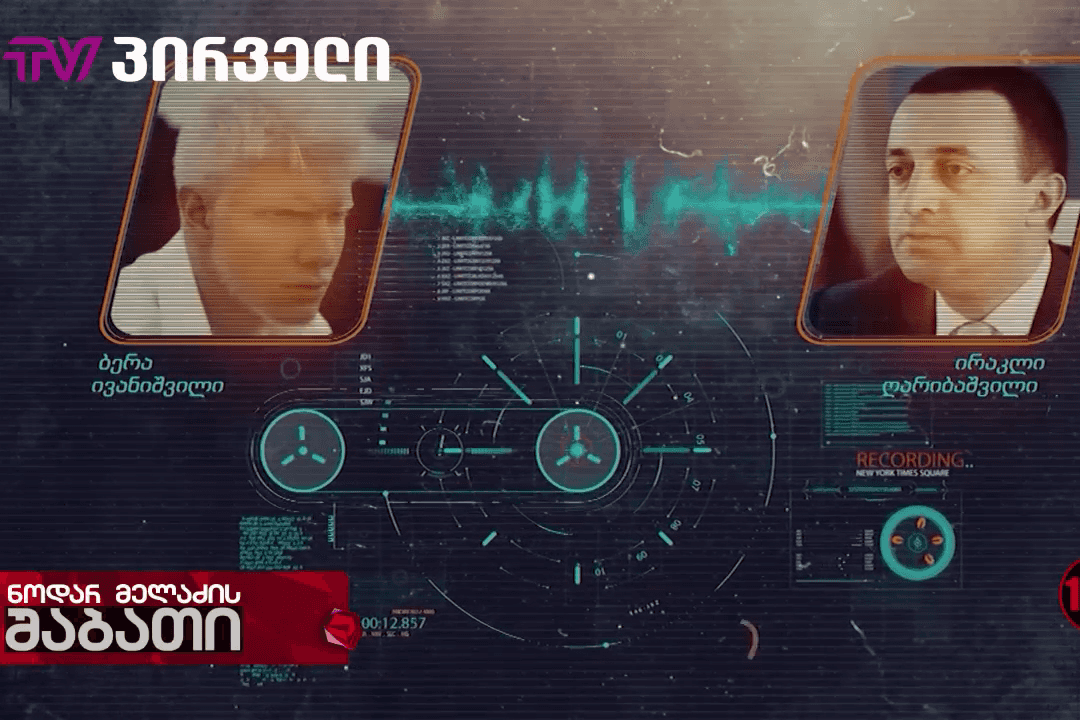
Opposition-leaning TV broadcaster Pirveli and media advocates have sounded the alarm after prosecutors successfully obtained a court permit to retrieve a drive and envelope containing leaked tapes that implicated the government in abuse of power.
On 10 March, a Georgian court granted permission to Georgia’s Prosecutor General to seize an ‘electronic carrier and an envelope’ from the offices of TV channel Pirveli, alarming advocates of media freedom in Georgia.
The ruling from Tbilisi City Court judge Lasha Kldiashvili came five days after Pirveli aired recordings of conversations between Bera Ivanishvili, the son of the founder of the ruling Georgian Dream party Bidzina Ivanishvili, and Georgian Prime Minister Irakli Gharibashvili.
The covert recordings suggest that Gharibashvili, as well as the head of the Special State Protection Service Anzor Chubinidze, worked on behalf of Bera Ivanishvili as he tried to go after his critics.
[Read more on OC Media: Calls for Georgian PM’s resignation follow scandalous recordings]
Despite the implied abuse of power, Georgian authorities never confirmed they were probing the contents of the tapes or the claims by potential victims. The Prosecutor’s Office instead launched an investigation on 9 March over the illegal recording and distributing of private conversations — a day after the Georgian Dream MPs insisted it was the only legitimate interest.
Hours after the notification from the court, Pirveli’s Director Vakhtang Tsereteli warned the law enforcement agencies against ‘storming’ their offices.

What alarmed journalists more was the judge allowing investigators to apply a ‘proportional coercive measure’ in case someone resisted their investigative activities, a passage echoing Article 111.7 of the Criminal Procedure Code.
Tbilisi City Court later stated that citing ‘coercive action’ was part of the ‘standard form’ of the court order. Meanwhile, Georgian Dream parliamentary leader Mamuka Mdinaradze said that no media under his party’s rule would be restricted, while the Prosecutor’s Office confirmed that journalists had a right not to hand over the material they sought to obtain from them.

Gharibashvili also called the tapes a ‘fabrication’ and assured the public that the expectations of TV channel Pirveli’s office being ‘stormed’ were ‘baseless and absurd’.
Georgian Dream has previously been criticised for facilitating the takeover of formerly pro-opposition TV channel Rustavi 2, and independent regional broadcaster Adjara TV.
[Read OC Media’s editorial: The Georgian government’s year-long venture to tame Adjara TV is about to succeed]
Condemnations and speculation
Soon after Pirveli published the court decision, a collection of 20 opposition parties denounced the move as a ‘dangerous sign of authoritarianism from the Ivanishvili regime’.
Georgian Public Defender Nino Lomjaria as well as the Coalition for Media Advocacy warned that the court order issued on 10 March contravened both local and international standards that protected freedoms of the media.
The US Embassy in Georgia also released a comment.
‘We are watching closely developments at TV Pirveli, in particular the interactions between law enforcement and members of the media’, an Embassy statement issued on 12 March reads. ‘The balanced, impartial application of the rule of law and the right of journalists to safeguard their sources – a fundamental principle of media freedom — must remain priorities as this investigation is conducted.’
While the court order that Pirveli unveiled on 11 March mentioned retrieving an electronic device and an envelope it was placed in, it did not explicitly allow a general search of the premises — normally a necessary procedure for obtaining material that is not willingly being handed over to investigators.
This triggered additional confusion as to what the authorities were trying to accomplish.
Nodar Meladze, the host of ‘Nodar Meladze’s Saturday’ the show that aired the leaked recordings on 6 March, accused the authorities of ‘terrorising and intimidating the media’. He claimed that he had no intention to help investigators in identifying the source of the tapes.
According to Article 11.1 of the Law of Georgia on Freedom of Speech and Expression, ‘the sources of professional secrets shall be protected by an absolute privilege, and nobody shall have the right to require disclosure of the source’.
Meladze insisted that the Prosecutor’s Office was only interested in tracking down the source because he was someone from among the ruling party’s midst.
While the time the audio conversations were made remains unverified, some government critics, including the party’s former members, have speculated that in recent years, the internal divisions within the party have escalated to a degree that secret recordings made by intra-party rivals are not irregular.








